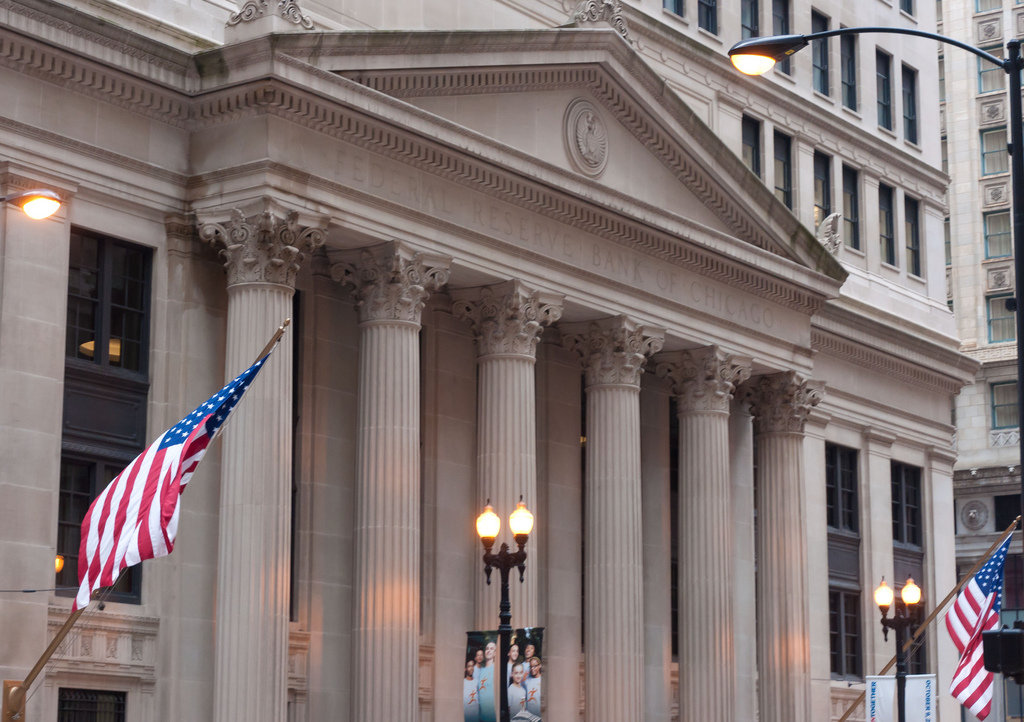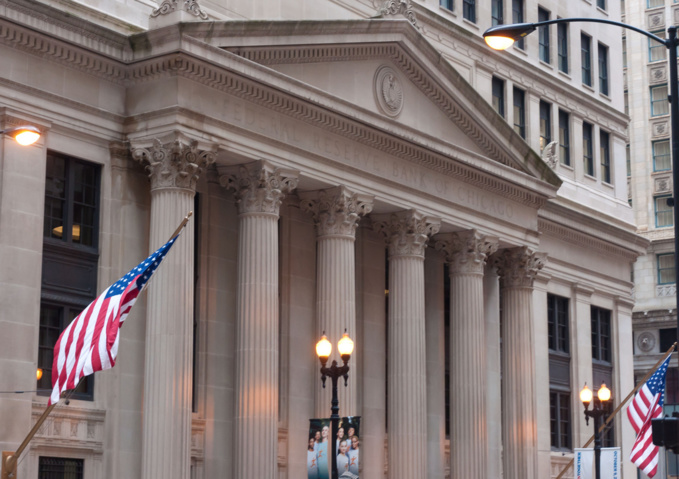The US Federal Open Market Committee, following a two-day meeting, retained the key rate at the same level - 1.25-1.5% per annum. This rate was raised three times in 2017, by a total of 0.75 percentage points. In September, the regulator also announced beginning of a clearing of its balance sheet, which, as a result of three quantitative easing programs, accumulated assets worth $ 4.4 trillion. Now, the regulator sells a maximum of $ 20 billion a month.
In the statement, the Fed noted "a noticeable increase in economic activity" and an improvement in the employment situation, capital investment and household consumption. The committee forecasts an increase in inflation expectations, indicating that they remain low so far. Also, the regulator reiterated the intention to "carefully monitor" price changes.
The committee members are still waiting for three increases in the base rate next year, which implies a level above 2% already in 2018 (for 2019-2020 most members of the committee forecast two increases per year).
Key indicators, indeed, indicate an improvement in the situation in the US economy. The unemployment rate in December was only 4.1%. The inflation indicator, which is also oriented by the Fed, in December rose by 0.1% (to 1.7%), without spending on food and energy - by 0.2% (to 1.5%). Growth rates in the fourth quarter were below expectations (2.6% to the same period in 2016), but capital investment grew by 7.9% year-on-year (due to renewed investment in the energy sector), consumption - by 3.8%.
Market participants forecast the first rate increase in March against this background. Nevertheless, they do not expect that a new head of the regulator will tighten monetary policy. The new chairman of the Fed, Jerome Powell, shares Janet Yellen's views on rates of rate hikes, but is less critical of financial deregulation reform (it implies a partial refusal of strict requirements for banks and other participants in the financial market). Note that the administration of Donald Trump point to the benefits of a weak dollar for the country's economy - this, in particular, said the head of the Ministry of Finance Steven Mnuchin.
Experts note that the financial conditions in the US are not getting worse, despite the increase in rates and the clearing of the balance of the Fed. Thus, Capital Economics points to an accelerating growth in lending, primarily consumer loans. The placement of bonds by the private sector in 2017 also turned out to be a record $ 1.8 trillion (more was in 2007 alone - $ 2.2 trillion). Julius Baer, in turn, notes that the weakness of the dollar last year, "excessively offset three increases in rates, and the index of financial conditions even increased compared to the beginning of the year." A weak dollar exerts the same positive effect on the US economy as the interest rate cuts, the bank concluded. However, since the beginning of the year, the required yield on ten-year government securities (seen as an indicator of expectations for long-term inflation) has already grown by almost 10% - to about 2.7%.
source: cnn.com
In the statement, the Fed noted "a noticeable increase in economic activity" and an improvement in the employment situation, capital investment and household consumption. The committee forecasts an increase in inflation expectations, indicating that they remain low so far. Also, the regulator reiterated the intention to "carefully monitor" price changes.
The committee members are still waiting for three increases in the base rate next year, which implies a level above 2% already in 2018 (for 2019-2020 most members of the committee forecast two increases per year).
Key indicators, indeed, indicate an improvement in the situation in the US economy. The unemployment rate in December was only 4.1%. The inflation indicator, which is also oriented by the Fed, in December rose by 0.1% (to 1.7%), without spending on food and energy - by 0.2% (to 1.5%). Growth rates in the fourth quarter were below expectations (2.6% to the same period in 2016), but capital investment grew by 7.9% year-on-year (due to renewed investment in the energy sector), consumption - by 3.8%.
Market participants forecast the first rate increase in March against this background. Nevertheless, they do not expect that a new head of the regulator will tighten monetary policy. The new chairman of the Fed, Jerome Powell, shares Janet Yellen's views on rates of rate hikes, but is less critical of financial deregulation reform (it implies a partial refusal of strict requirements for banks and other participants in the financial market). Note that the administration of Donald Trump point to the benefits of a weak dollar for the country's economy - this, in particular, said the head of the Ministry of Finance Steven Mnuchin.
Experts note that the financial conditions in the US are not getting worse, despite the increase in rates and the clearing of the balance of the Fed. Thus, Capital Economics points to an accelerating growth in lending, primarily consumer loans. The placement of bonds by the private sector in 2017 also turned out to be a record $ 1.8 trillion (more was in 2007 alone - $ 2.2 trillion). Julius Baer, in turn, notes that the weakness of the dollar last year, "excessively offset three increases in rates, and the index of financial conditions even increased compared to the beginning of the year." A weak dollar exerts the same positive effect on the US economy as the interest rate cuts, the bank concluded. However, since the beginning of the year, the required yield on ten-year government securities (seen as an indicator of expectations for long-term inflation) has already grown by almost 10% - to about 2.7%.
source: cnn.com



















